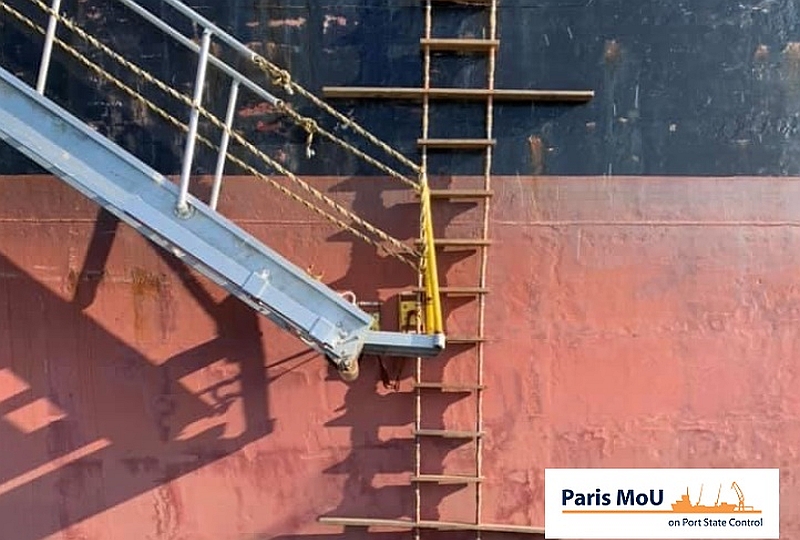From 10 July to 9 August 2023, the Paris Memorandum of Understanding (MoU) on Port State Control conducted a Focused Inspection Campaign on pilot transfer arrangements. This subject was chosen after several incidents had occurred during pilot transfer.
The Paris MoU is trialling an alternative approach to the regular Concentrated Inspection Campaigns (CICs) by conducting several short targeted inspection campaigns referred to as Focused Inspection Campaigns (FICs). In the coming months more such FICs are scheduled.
After completion of the trials, the results, ease of implementation and effectiveness will be assessed and, on this basis, further decisions will be made on inspection campaigns and their format. Part of the trial also involves assessing with whether or not to pre-announce the inspection campaign.
Also read: Paris MoU records highest detention rate in ten years
Pilot transfer arrangements
The first FIC was carried out on pilot transfer arrangements PTAs. Incidents have taken place recently, both within the Paris MoU region and beyond, which warranted carrying out this campaign.
Most of the time pilot transfers are carried out safely, but the potential consequences of a person falling from a ladder can be fatal and the high-risk embarkation and disembarkation of the pilot by ladder requires constant management and supervision.
Also read: Netherlands loses runner-up spot on Port State Control performance list to Italy
100 ships found to have deficiencies
The purpose of the campaign was to verify whether the PTAs on board the ships inspected were fulfilling the SOLAS requirements. A total of 1262 Port State Control inspections were carried out, during which 100 ships were found with one or more deficiencies with the PTA.
Deficiencies found indicated that:
- When requested by Port State Control Officers to demonstrate, pilot ladders were not properly rigged to allow pilots to embark and disembark safely. On several occasions it was found that the weight of the ladder was not taken by its strongest point but, for example, by the steps.
- Pilot ladders were damaged and/or not properly maintained.
- Identification of ladders and record keeping of surveys and repairs were missing.
As the transfer via an embarkation ladder is a high-risk operation, flag states, ship management companies and ship crews should be aware of the associated risks and PTAs should be rigged in line with the SOLAS requirements.
As usual, if deficiencies are found, actions by the port state may vary from recording a deficiency and instructing the master to rectify it within a certain period of time, to detaining the ship until the serious deficiencies have been rectified. In the case of detention, publication in the monthly detention lists of the Paris MoU website will take place.
Also read: Pilot ladder crimp glitch caught in time








